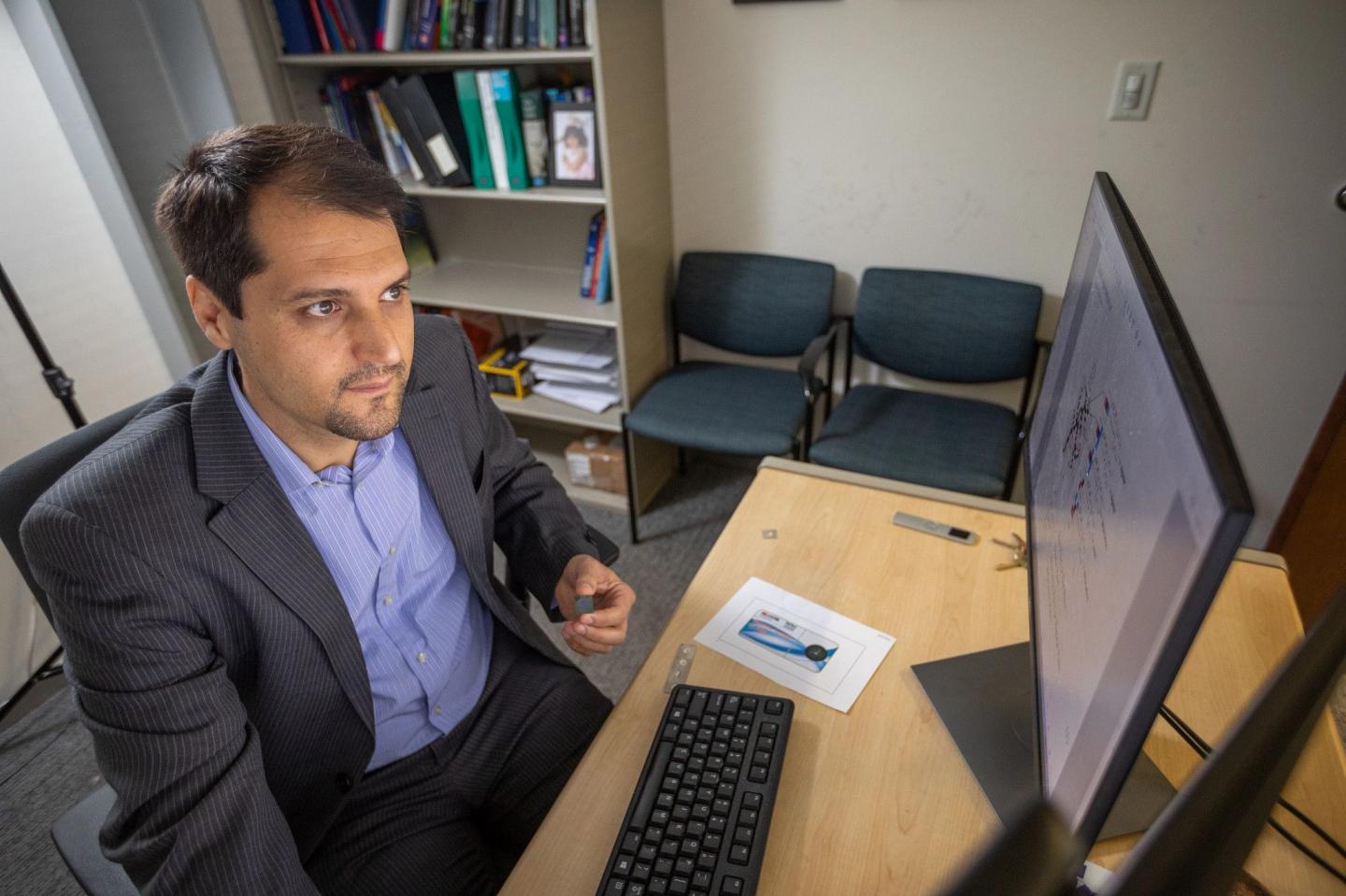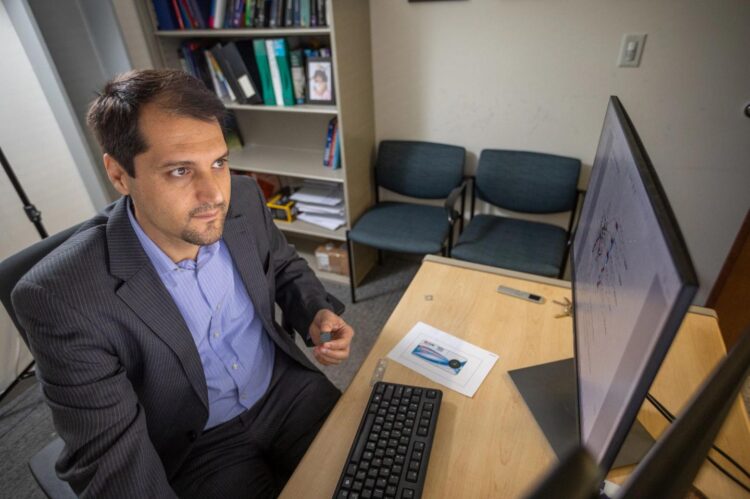Multidisciplinary project will use dendritic tags to enable food traceability any point in the supply chain

Credit: Northern Arizona University
According to the Centers for Disease Control and Prevention, more than 48 million Americans are sickened by foodborne illnesses each year, costing the economy more than $15 billion. To combat this persistent problem, the U.S. Food and Drug Administration and other government agencies are prioritizing improved safety measures across all sectors of food production, processing, distribution and preparation.
A core element of these efforts is better technology-enabled food traceability. Northern Arizona University assistant professor Abolfazl Razi of NAU’s School of Informatics, Computing, and Cyber Systems recently joined a multidisciplinary project funded by the U.S. Department of Agriculture and led by Arizona State University to develop a groundbreaking solution.
Michael Kozicki, a professor of electrical engineering at ASU, is directing an effort to create dendritic tags as a means to securely identify food at any point in the supply chain. Dendrites are shapes that occur abundantly in the natural world, such as the branches of trees, streams and tributaries of river systems and blood vessels and nerves in the human body.
“These patterns form with a high degree of entropy, so no two dendrites are exactly the same,” Kozicki said. “And since dendrites are relatively easy to produce electrochemically or photochemically, we can cheaply manufacture dendritic tags or labels offering truly singular identities that are effectively impossible to forge or duplicate, unlike a bar code or QR code.”
Application of this dendritic technology could include, for example, labeling every head of commercially grown lettuce with the identity of the farm, field and row from which it is sourced. Such precision could enable a level of traceability that dramatically reduces the impact of a contamination incident. A small batch of tainted lettuce could be more quickly identified and isolated in the supply chain, preventing human illness and sparing tons of safe but suspect food that currently is destroyed out of caution.
Kozicki and Yago Gonzalez Velo, an assistant research professor of electrical engineering at ASU, have started working with students in the lab to improve and scale the currently manual and time-consuming process of dendritic fabrication using an electrolyte solution. Alongside tag production, they will test their output with stretching, bending, abrasion, heat, humidity and other factors that represent the rigors of the food supply chain.
Razi, who was awarded $140,205 in funding from the USDA grant, will design and implement the processing pipeline, testing procedure and algorithmic foundation for using identity tags for their intended purpose. Director of NAU’s Wireless Networking and Smart Health Lab, Razi will use his image processing expertise to develop the algorithm and the reading system necessary to verify tag data using cellphone-based and cloud-based software platforms. This project builds on the work of his former and current graduate students, including Huayu Li, Ali Valehi, Han Peng, Zaoyi Chi and Hao Wang.
“On the network side, we’ll need a reference library of images with which we can develop the algorithm to authenticate these dendritic tags,” Razi said. “We’ll be implementing techniques like graph theory and also deep learning methods to reconstruct an image of what is actually a 3D shape and then verify its legitimacy down to the nano scale. Additionally, we need to develop a cell phone adapter device and an app to make this system easy to use by industry and consumers.”
Another important aspect of real-world application is integrating this innovative technology with current food systems processing materials and equipment. This part of the project will be led by Mark Manfredo, a professor of agribusiness at ASU.
“We look forward to working with our local industry contacts to help test what is being developed,” Manfredo said. “We’re already engaging with a large grower of organic greens, and we also hope to work with a melon grower in the state. We need to learn more about the supply chains for these commodities and ultimately evaluate the new tags in commercial settings.”
Manfredo said the project team also needs to consider the most economically feasible place within the supply chain to adopt these dendritic identifiers in the context of current systems. “Is it with the growers? Or the processors? Or with retailers?” he said. “So, we’ll look at all the incremental costs of implementing the tags at different stages.”
Manfredo noted there is incremental value to consider in adopting this innovation. “What is the economic value of applying these unclonable tags? Certainly, there is value in waste reduction. But the data also represent marketing opportunities,” he said. “And, of course, the public health value is just enormous.”
###
About Northern Arizona University
Northern Arizona University is a higher-research institution providing exceptional educational opportunities in Arizona and beyond. NAU delivers a student-centered experience to its nearly 30,000 students in Flagstaff, statewide and online through rigorous academic programs in a supportive, inclusive and diverse environment. Dedicated, world-renowned faculty help ensure students achieve academic excellence, experience personal growth, have meaningful research opportunities and are positioned for personal and professional success.
Media Contact
Abolfazl Razi
[email protected]





